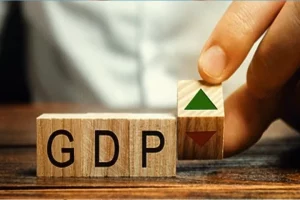The Indian economy is on a strong wicket and stable footing, demonstrating resilience in the face of geopolitical challenges, as per the Economic Survey 2023-24 tabled by Finance Minister Nirmala Sitharaman in Parliament on Monday.
The Indian economy has consolidated its post-Covid recovery with policymakers – fiscal and monetary – ensuring economic and financial stability, the 476-page Economic Survey document said in its initial remarks. It asserted that the economy continues to expand.
However, indicating global volatility, the Survey document asserted that change is the only constant for a country with high growth aspirations.
“For the recovery to be sustained, there has to be heavy lifting on the domestic front because the environment has become extraordinarily difficult to reach agreements on key global issues such as trade, investment and climate,” the Survey read.
“Public investment has sustained capital formation in the last several years even as the private sector shed its balance sheet blues and began investing in FY22. Now, it has to receive the baton from the public sector and sustain the investment momentum in the economy. The signs are encouraging,” said the Survey.
According to the survey document “High economic growth in FY24 came on the heels of growth rates of 9.7 per cent and 7.0 per cent, in the previous two financial years.
The Survey said that the headline inflation rate is largely under control, although the inflation rate of some specific food items is elevated. The trade deficit was lower in FY24 than in FY23, and the current account deficit for the year is around 0.7per cent of GDP.
The current account registered a surplus in the last quarter of the financial year. Foreign exchange reserves are ample. Public investment has sustained capital formation in the last several years even as the private sector shed its balance sheet blues and began investing in FY22.
National income data show that non-financial private-sector capital formation, measured in current prices, expanded vigorously in FY22 and FY23 after a decline in FY21. However, investment in machinery and equipment declined for two consecutive years, FY20 and FY21, before rebounding strongly. Early corporate sector data for FY24 suggest that capital formation in the private sector continued to expand but at a slower rate.
The economic survey read “The tripartite compact that this country needs to become a developed nation amidst emerging unprecedented global challenges is for governments to trust and let go, for the private sector to reciprocate the trust with long-term thinking and fair conduct and for the public to take responsibility for their finances and their physical and mental health.”
The Union government tabled the Economic Survey 2023-24 in Parliament. The Economic Survey document, prepared by the Economic Division of the Department of Economic Affairs in the Ministry of Finance and formulated under the supervision of the chief economic adviser, gives insights into the state of the economy and various indicators of 2023-24 (April-March) and some outlook for the current year.
With this upcoming budget presentation, Finance Minister Nirmala Sitharaman will surpass the record set by former Prime Minister Morarji Desai, who presented five annual budgets and one interim budget between 1959 and 1964 as finance minister. Sitharaman’s upcoming budget speech will be her seventh.




















